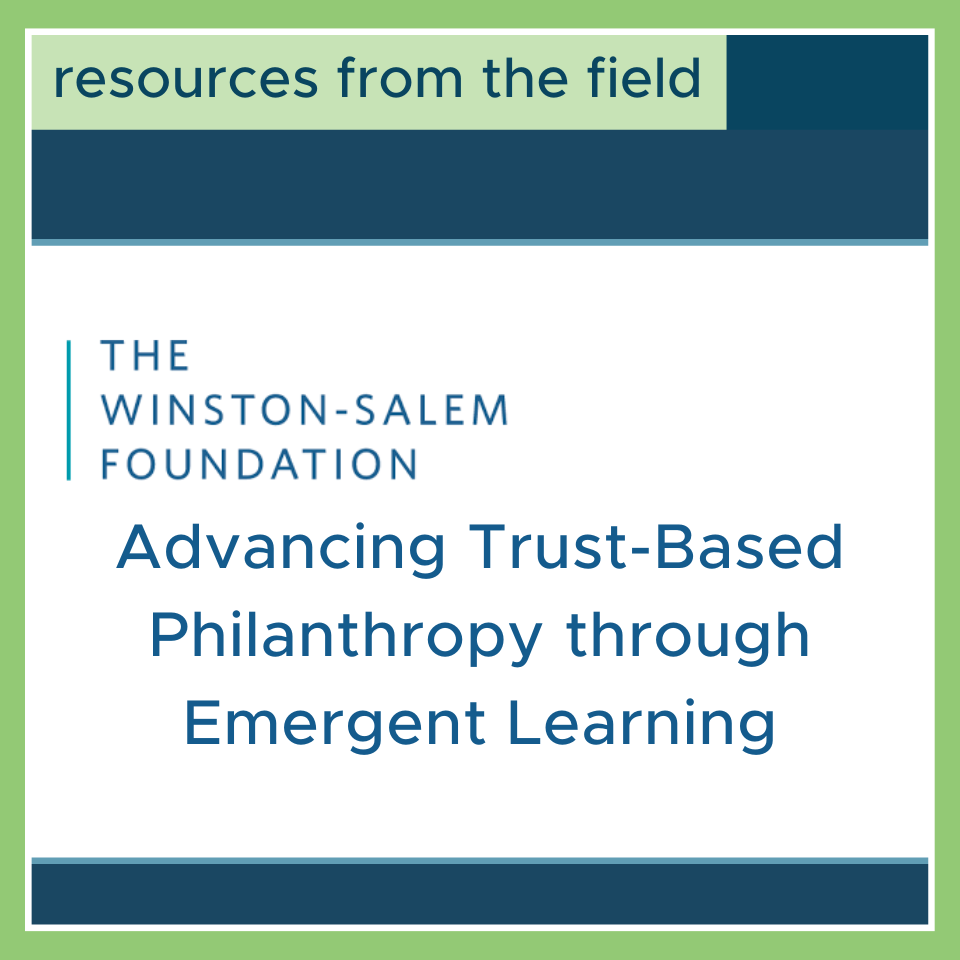Advancing Trust-Based Philanthropy through Emergent Learning
When the Winston-Salem Foundation sought to sharpen its community investment focus in 2016, Foundation staff and the Board knew that how they went about this shift was just as important as the shift itself. Listening to the community, digging deep into an internal commitment to racial equity, and reimagining the roles of program officers launched the Foundation onto the dual pathways of trust-based philanthropy and emergent learning.
In this report, Brittney Gaspari, Vice President of Community Investment at the Foundation, describes how emergent learning tools and frameworks bolster the relationship-building and transparency so critical to trust-based philanthropy. Emergent learning is a framework for facilitating conversations among stakeholders that surface the group’s collective thinking about goals and hypotheses for their work over time, supporting ongoing learning and adaptation. Using emergent learning tools in conversations with the Foundation’s grantees helped the Foundation live out many trust-based practices: they did their own homework, streamlined paperwork, mitigated power imbalances among stakeholders, and centered their relationships with nonprofits and local partners.

